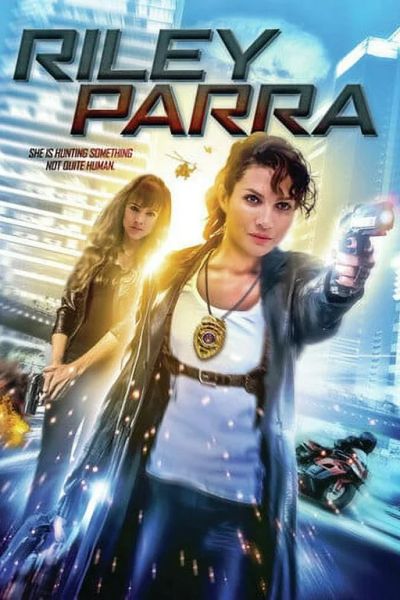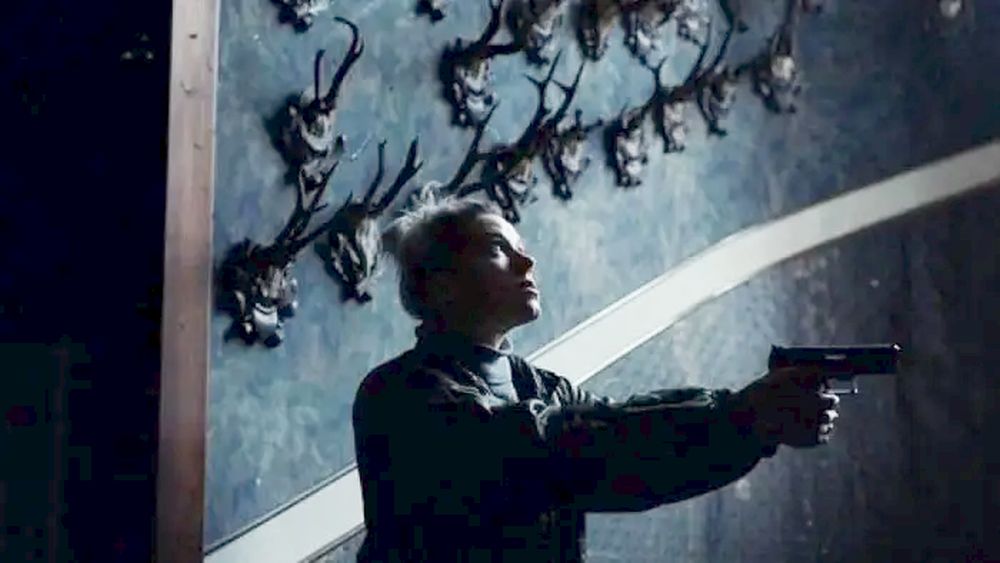Literary rating: ★★★½
Kick-butt quotient: ☆☆☆½
 This is a solid, no-nonsense combination of spy and science-fiction. Though, to be honest, it is skewed towards the former genre, with the latter mostly window-dressing. It wouldn’t take much to change the setting from a solar system whose ownership is disputed by a couple of galactic empires, to a city whose ownership is disputed by a couple of countries. The planet is Hudson, claimed both by the Star Kingdom of Prometheus and the Koratan Confederacy. Heather Kilgore is among the best agents of the Promethean King’s Order, and is dispatched to Hudson after the suspicious death of a man who had betrayed the Kingdom, former commander Connor Monroe
This is a solid, no-nonsense combination of spy and science-fiction. Though, to be honest, it is skewed towards the former genre, with the latter mostly window-dressing. It wouldn’t take much to change the setting from a solar system whose ownership is disputed by a couple of galactic empires, to a city whose ownership is disputed by a couple of countries. The planet is Hudson, claimed both by the Star Kingdom of Prometheus and the Koratan Confederacy. Heather Kilgore is among the best agents of the Promethean King’s Order, and is dispatched to Hudson after the suspicious death of a man who had betrayed the Kingdom, former commander Connor Monroe
Her job is to find out the truth behind the event, but things are complicated in a number of ways. She and Connor had been lovers previously – while part of a mission, it might have been more than that. Also, she’s partnered with her former mentor, Tabitha Lowry. There’s history there as well, the pair having parted on poor terms during a previous case. They’re going to have to put the past aside, in order to figure out who – if anyone – was behind Monroe’s passing. And it quickly becomes clear that certain parties, with the Koratans the lead suspects, have a strong interest in not letting the truth be discovered by Heather and Tabitha, and will do anything to prevent this.
This is 258 pages, but felt shorter, which is generally a good sign, with a healthy quota of action, both given and received. Heather is undeniably able to take care of herself, even against multiple opponents, but is certainly not bulletproof. Indeed, at one point she has sit things out for several days, after getting hurt. She just chills in a remote cabin with a local kid, learning to appreciate the joys of things like fishing; this could have felt like needless padding, but ends up providing the heroine with additional depth. [The cover pic seems an accurate depiction of her as described; Kilgore is not exactly an under-the-radar kind of operative!]
My main complain was pacing. It felt as if the first eighty percent of the book contained eighty percent of the plot. Then the last twenty percent? Well, that contained eighty percent of the plot as well. As well as going from investigation to resolution in what seemed like just a few pages, it’s there where we discover Heather and Tabitha’s history. To be honest, this didn’t add particularly much, and seemed at odds with the very hard-nosed attitude shown by Heather. Since it wasn’t a secret between them, I would have brought it out far earlier. Despite such missteps down the stretch, this was an entertaining read, with a memorable central character, and a story I could see unfolding cinematically in my mind’s eye. The next volume is on my list for future consideration.
Author: Skyler Ramirez
Publisher: Persephone Entertainment Inc., available through Amazon, both as a paperback and an e-book
Book 1 of 3 in the A Star Nation in Peril series.





 This is not to be confused, in any way, with the
This is not to be confused, in any way, with the  The idea here is considerably stronger than the execution. Police detective Riley Parra (Hassler) works the scummiest part of town, which is ruled by mysterious and possibly legendary figure Marchosias (Landler). However, while working a murder case, Riley discovers the area is, in fact, Ground Zero for an ongoing war between demons and angels. More startlingly yet, she’s directly involved, because she is the “champion” on the side of the angels. This revelation has the potential to destroy the shaky truce which has been in place between the two sides. Riley also has to deal with pesky journalist, Gail Finney (Sirtis, sporting an Australian accent for some reason), and attraction to new medical examiner Dr. Gillian Hunt (Vassey).
The idea here is considerably stronger than the execution. Police detective Riley Parra (Hassler) works the scummiest part of town, which is ruled by mysterious and possibly legendary figure Marchosias (Landler). However, while working a murder case, Riley discovers the area is, in fact, Ground Zero for an ongoing war between demons and angels. More startlingly yet, she’s directly involved, because she is the “champion” on the side of the angels. This revelation has the potential to destroy the shaky truce which has been in place between the two sides. Riley also has to deal with pesky journalist, Gail Finney (Sirtis, sporting an Australian accent for some reason), and attraction to new medical examiner Dr. Gillian Hunt (Vassey). I was a little nervous on reading the IMDb trivia section: “Three motorcycle clubs participated as extras and offered technical advice.” If this sucked and I gave it a bad review, would I get a visit from a group of annoyed bikers, offering me ‘technical advice’ with a wrench? Turns out I needn’t have worried. While low-budget by Hollywood standards, it has some interesting ideas, and the execution is competent enough to pass muster. The events here take place after the collapse of the United States, when everywhere West of the Mississippi has basically been left to fend for itself. In this part of Nevada, that means two biker gangs, the Skoners and the Gypsies are fighting for control.
I was a little nervous on reading the IMDb trivia section: “Three motorcycle clubs participated as extras and offered technical advice.” If this sucked and I gave it a bad review, would I get a visit from a group of annoyed bikers, offering me ‘technical advice’ with a wrench? Turns out I needn’t have worried. While low-budget by Hollywood standards, it has some interesting ideas, and the execution is competent enough to pass muster. The events here take place after the collapse of the United States, when everywhere West of the Mississippi has basically been left to fend for itself. In this part of Nevada, that means two biker gangs, the Skoners and the Gypsies are fighting for control. ★★★
★★★ The above sounds a bit confusing. It may be at first glance, with a large number of characters with different interests popping up in the story. But once you have bought into the SF premise, things are actually not that complicated. What we have here is a crime thriller with cops, agents, terrorists and big money companies. It all leads to a well thought-out and very satisfying action-mystery, where for a long time you can’t be sure who is behind it all and why. Hint: it’s not who you may think. The solution was – at least for me – quite a surprise.
The above sounds a bit confusing. It may be at first glance, with a large number of characters with different interests popping up in the story. But once you have bought into the SF premise, things are actually not that complicated. What we have here is a crime thriller with cops, agents, terrorists and big money companies. It all leads to a well thought-out and very satisfying action-mystery, where for a long time you can’t be sure who is behind it all and why. Hint: it’s not who you may think. The solution was – at least for me – quite a surprise. If a little light on the action front, this probably makes up for it in heart. On surface, the Brackett family are largely like any other. Sure, mom Emma (Cuoco) spends a lot of time out of town on business. But she loves husband Dave (Oyelowo) and her two kids, even if she’s a little unfocused, forgetting their anniversary. The problem is, as we know from the start, that Emma is a hitwoman, who used to work for an organization called Sovereign, before turning freelance. They’re still after her. And that’s where the problems start, as on a make-up anniversary date at a hotel, she’s spotted by Bob Kellerman (Nighy), another freelancer, interested in collecting the reward on Emma’s head.
If a little light on the action front, this probably makes up for it in heart. On surface, the Brackett family are largely like any other. Sure, mom Emma (Cuoco) spends a lot of time out of town on business. But she loves husband Dave (Oyelowo) and her two kids, even if she’s a little unfocused, forgetting their anniversary. The problem is, as we know from the start, that Emma is a hitwoman, who used to work for an organization called Sovereign, before turning freelance. They’re still after her. And that’s where the problems start, as on a make-up anniversary date at a hotel, she’s spotted by Bob Kellerman (Nighy), another freelancer, interested in collecting the reward on Emma’s head. To be one hundred percent clear, the best thing about this is the rather arresting poster. A far better film than what we have here, would struggle to live up to it. Instead, we have a classic example of vanity cinema, where one man decides to write, direct and play a major part in his own movie. The over-ambition here is palpable, to an often accidentally amusing degree. Perhaps most obviously, a pair of “car chases” – and I use the quotes deliberately – which unfold at a stately 15-20 mph, involving a muscle car on which the production clearly could not afford a single scratch on the paint. They’d have been better off not bothering.
To be one hundred percent clear, the best thing about this is the rather arresting poster. A far better film than what we have here, would struggle to live up to it. Instead, we have a classic example of vanity cinema, where one man decides to write, direct and play a major part in his own movie. The over-ambition here is palpable, to an often accidentally amusing degree. Perhaps most obviously, a pair of “car chases” – and I use the quotes deliberately – which unfold at a stately 15-20 mph, involving a muscle car on which the production clearly could not afford a single scratch on the paint. They’d have been better off not bothering.  It feels as if South Korea is going through all the Olympic sports, making films based on each of them. Indeed, this film’s alternate title makes it a sequel to Take Off, about ski-jumping. I’ve seen two of the previous entries, covering archery (
It feels as if South Korea is going through all the Olympic sports, making films based on each of them. Indeed, this film’s alternate title makes it a sequel to Take Off, about ski-jumping. I’ve seen two of the previous entries, covering archery ( In various places, the title for this is “a Lady”or “the Lady” fighter: I’m going with what’s firmly stated on the opening credits of the print, ungrammatical as that may be. It’s a Filipino product, but unlike the New World Pictures of the early seventies, is an entirely domestic production. Though in many ways, it feels almost like a Taiwanese chop-socky flick, taking place in a rural village, beset by bandits. Into town strolls wandering martial arts master Ming (Ortega), who agrees to teach the locals his self-defense skills, albeit only following a stern warning about what will happen if they use them for revenge or gain.
In various places, the title for this is “a Lady”or “the Lady” fighter: I’m going with what’s firmly stated on the opening credits of the print, ungrammatical as that may be. It’s a Filipino product, but unlike the New World Pictures of the early seventies, is an entirely domestic production. Though in many ways, it feels almost like a Taiwanese chop-socky flick, taking place in a rural village, beset by bandits. Into town strolls wandering martial arts master Ming (Ortega), who agrees to teach the locals his self-defense skills, albeit only following a stern warning about what will happen if they use them for revenge or gain. The title here is used ironically, because “run” is the last thing the heroine can do. She is Chloe Sherman (Allen), a teenage girl who has been plagued by medical issues since birth, requiring full-time care from her mother, Diane (Paulson). She’s partially paralyzed, unable to walk, and also suffers from severe asthma. Chloe is, however, awaiting the result of her college application, and is eagerly looking forward to starting a new, independent life, having been home-schooled by Mom, who is the very definition of a helicopter parent. One day, Chloe discovers some of her medication is in her mother’s name, and gradually discovers more evidence that something is very wrong with Diane. If her suspicions are right, the bigger question is, what can Chloe do about it?
The title here is used ironically, because “run” is the last thing the heroine can do. She is Chloe Sherman (Allen), a teenage girl who has been plagued by medical issues since birth, requiring full-time care from her mother, Diane (Paulson). She’s partially paralyzed, unable to walk, and also suffers from severe asthma. Chloe is, however, awaiting the result of her college application, and is eagerly looking forward to starting a new, independent life, having been home-schooled by Mom, who is the very definition of a helicopter parent. One day, Chloe discovers some of her medication is in her mother’s name, and gradually discovers more evidence that something is very wrong with Diane. If her suspicions are right, the bigger question is, what can Chloe do about it?